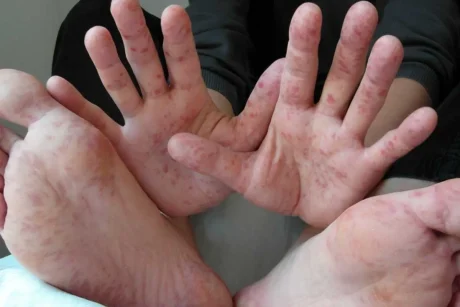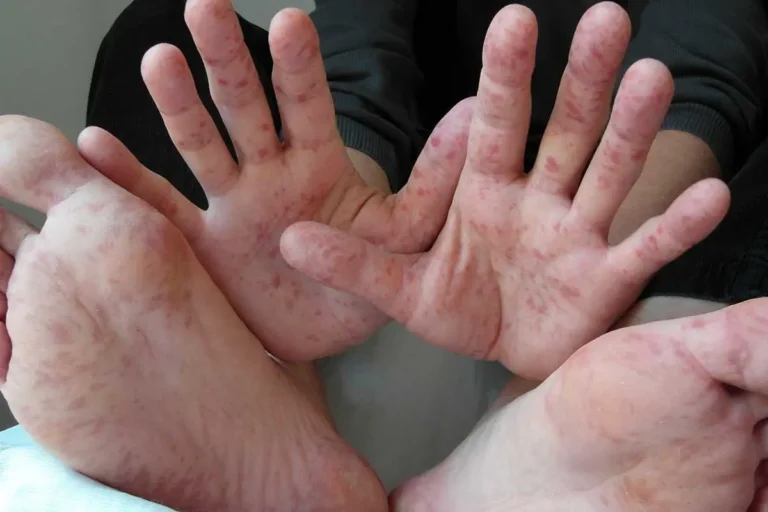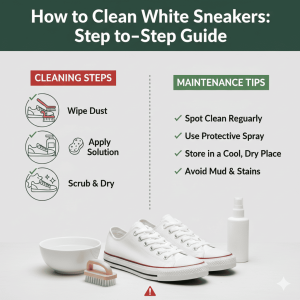Hand, foot, and mouth disease (HFMD) is endemic in Singapore and affects children of all ages, particularly those below 5 years old, according to Singapore’s Ministry of Health.
While the name might sound concerning to parents, HFMD is generally mild and self-limiting, with most children recovering completely within a week.
Recent epidemiological studies show that Singapore reported over 40,000 cases of HFMD in peak years like 2018, making it one of the most commonly encountered childhood illnesses in our tropical climate.
Understanding this common childhood illness can help you recognize symptoms early, provide proper care, and create a supportive environment for your family’s recovery.
What is hand, foot, and mouth disease?
Hand foot and mouth disease is a viral illness that frequently affects young children in Singapore. While usually mild, this HFMD condition causes significant discomfort for little ones and considerable worry for families. The disease is endemic in Singapore, meaning it stays present in our community throughout the year.
Hand, foot, and mouth disease particularly targets children below age five. About one in three children under five will encounter this illness. Singapore’s tropical climate creates ideal conditions for the viruses that cause hand foot mouth disease to spread and survive.
The hand foot mouth virus belongs to a group called Enteroviruses, especially Coxsackievirus A16 and Enterovirus 71 (EV-A71). An important fact about these enteroviruses is that getting sick from one strain only protects you from that specific strain. This means children can get hand foot and mouth disease multiple times from different virus strains.
Why should Singapore families worry about HFMD?
Hand foot mouth disease appears year-round in Singapore with seasonal peaks happening every year. The high spread rate of these viruses makes hfmd a persistent health issue for local families.
Childcare centers, kindergartens, and preschools often become hotspots for outbreaks. Young children under five face the highest risk because their immune systems are still developing. When hfmd strikes a family, the impact goes beyond the child’s discomfort. Parents often need time off work to care for their sick child.
A challenging aspect of controlling hand foot and mouth disease involves asymptomatic transmission. Between 50% to 80% of people infected with these viruses show no symptoms at all. These hidden carriers can still spread the hand foot mouth virus to others without knowing it.
How do I spot HFMD symptoms?
The early signs hand foot and mouth disease can appear suddenly, causing significant discomfort for children. Parents should watch for several symptoms appearing together.
A child with hand foot mouth symptoms typically starts with fever, often one of the first warning signs. Sore throat follows, leading to fussiness and trouble swallowing. Painful mouth ulcers develop on the tongue, gums, and inside cheeks. In babies and toddlers, this shows up as increased drooling or refusing to eat or drink.
The characteristic rash appears as flat or raised red spots, sometimes developing into small fluid-filled blisters. This rash typically shows up on palms and soles, but also appears on buttocks and sometimes around the mouth, elbows, and knees. Other symptoms include poor appetite, unusual tiredness, headaches, and sometimes vomiting or diarrhea.
When should I see a doctor immediately?
While hfmd usually stays mild, rare but serious complications can occur. Parents must know warning signs that may indicate severe illness requiring immediate medical attention.
Seek urgent care for persistent high fever lasting more than three days, signs of dehydration like refusing to drink or dry mouth, and reduced urine output. Changes in consciousness or behavior demand immediate attention, including unusual drowsiness, difficulty waking up, persistent irritability, or confusion.
Neurological symptoms require emergency care, including severe headache, neck stiffness, seizures, or sudden weakness in limbs. Respiratory symptoms like shortness of breath, difficulty breathing, or turning blue also need urgent medical attention. Trust your parental instincts – if your child seems unusually unwell or their condition worsens, always consult a healthcare professional.
How does HFMD spread?
Understanding how hand foot mouth virus travels from person to person helps families prevent infection. These viruses spread effectively through direct contact with respiratory secretions like saliva from drooling or sharing utensils, plus nasal discharge from coughing or sneezing.
The fecal-oral route creates another major transmission path. The virus lives in the feces of infected people and can spread through contaminated hands during diaper changing. Indirect transmission through contaminated surfaces allows viruses to spread through toys, doorknobs, tables, or shared utensils.
People stay most contagious during the first week of illness, but virus shedding continues much longer. The virus can keep shedding from the nose and throat for 3 to 4 weeks and in feces for 6 to 12 weeks after illness begins. This extended shedding period means hygiene practices must stay strict long after visible symptoms disappear.
How can I protect my family?
Simple, consistent hygiene practices provide the most powerful tools for preventing hand foot and mouth disease spread. Frequent and proper handwashing with soap and water creates the cornerstone of hfmd prevention.
Proper handwashing requires using soap and clean running water, lathering all hand surfaces including backs of hands, between fingers, and under nails. Scrub for at least 20 seconds and rinse well. Critical times include before eating, after using the toilet, after changing diapers, and after touching potentially contaminated surfaces.
Teach family members to cover their mouth and nose when coughing or sneezing, avoid touching eyes, nose, and mouth with unwashed hands, and never share personal items like eating utensils, cups, towels, or toothbrushes.
How do I disinfect my home?
Since hand foot mouth virus can survive on surfaces, regular cleaning and disinfection of home environments becomes essential. Focus on high-touch surfaces like doorknobs, light switches, tables, chairs, toys, remote controls, and bathroom fixtures.
Not all cleaning products kill the viruses causing hand foot and mouth disease. Solutions containing sodium hypochlorite (bleach) prove effective against enteroviruses. Prepare fresh bleach solutions daily using 1 part bleach to 99 parts water for general surfaces.
For effective disinfection, first clean surfaces with soap and water to remove visible dirt. Then apply disinfectant solutions and ensure contact time by keeping surfaces wet for several minutes. Some items can be heat-treated by exposure to 60°C for 15 minutes or machine washing in hot water.
How do I care for a sick child?
No specific antiviral treatment exists for hand foot mouth disease. Care focuses on supporting symptoms and ensuring child comfort. Manage fever and pain with paracetamol or ibuprofen as prescribed by doctors. Never give aspirin to children.
For painful mouth ulcers, offer soft foods like porridge, mashed potatoes, or yogurt. Provide cool foods and drinks like ice cream or popsicles that can soothe pain. Avoid acidic, spicy, or salty foods that irritate ulcers. Ensure adequate hydration by encouraging frequent fluid sips, focusing on liquids over solid food if appetite stays poor.
Prevent spread within households by limiting close contact, having sick children use separate items, and maintaining meticulous hand hygiene. Monitor other family members for symptoms and clean frequently touched surfaces multiple times daily.
When should I hire professional cleaners?
Professional can provide valuable support when dealing with hand foot mouth disease. Consider professional help after infected family members recover to ensure thorough viral elimination from surfaces and hard-to-reach areas.
Professional services use hospital-grade disinfectants and trained technician expertise ensures proper application and comprehensive coverage. This can be particularly valuable for busy working families, households with multiple young children, or families experiencing repeated infections.
Choose reputable providers experienced with pathogen disinfection who use products proven effective against enteroviruses. Look for companies highlighting baby and pet-safe products with transparent methods and good reviews. Professional disinfection doesn’t substitute for ongoing daily hygiene practices, but provides an additional layer of protection when comprehensive cleaning feels overwhelming.
The cost of professional disinfection often proves less than the combined costs of repeated illnesses, medical treatments, and lost work time, making it a worthwhile investment in family health and peace of mind.
When might professional disinfection help your family?
While daily cleaning and good hygiene habits form your primary defense against HFMD, some families find themselves in situations where professional support makes practical sense.
If you’re dealing with back-to-back infections in your household, perhaps one child recovers just as another falls sick, professional disinfection services can help break this exhausting cycle.
Working parents often struggle to balance caring for sick children while maintaining the intensive cleaning schedule needed to prevent reinfection.
When you’re already taking time off work and managing sleepless nights with a feverish toddler, the last thing you need is to worry about whether you’ve properly disinfected every surface.
Professional services become particularly valuable for families with newborns at home, elderly grandparents, or family members with compromised immune systems. These situations require the most thorough viral elimination possible from all surfaces, including hard-to-reach areas that daily cleaning might miss.






